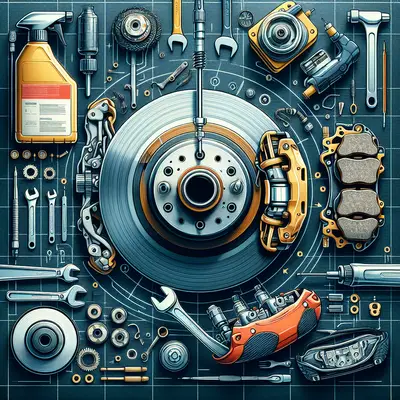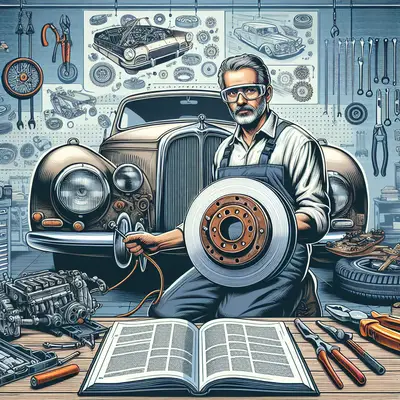Brake Fluid Replacement
Brake fluid, often the neglected component, plays a crucial role in your vehicle's braking system. It transfers the force from your foot on the brake pedal to the wheels. Over time, brake fluid absorbs moisture from the air, which can lead to corrosion in the brake system. Regular replacement of brake fluid can enhance the longevity of the brake system and ensure consistent braking performance.
Rotors Resurfacing
Rotors, the discs your brake pads clamp down on to stop your vehicle, can warp or wear unevenly over time. Resurfacing these rotors can restore them to a "like-new" condition and significantly improve your vehicle's stopping power. However, rotors can only be resurfaced so many times before they need to be replaced, so it's crucial to monitor their thickness.
Brake Pads Replacement
Brake pads bear the brunt of the braking force and tend to wear out over time. Replacing these pads before they get too thin is important to prevent damage to the rotors and ensure efficient braking. Premium quality brake pads, while pricier, can provide superior performance and a longer lifespan.
Anti-Lock Braking System (ABS) Maintenance
Modern vehicles are equipped with an Anti-Lock Braking System (ABS) that prevents the wheels from locking up during emergency braking. Regular maintenance of the ABS, including checking the speed sensors and the ABS modulator, can ensure the system functions as intended and enhances your vehicle's safety.
Regular Brake Inspections
Routine brake system inspections can help identify issues before they escalate into costly repairs or dangerous situations on the road. These inspections include checking the brake lines for leaks or damage, evaluating the condition of the brake pads and rotors, and assessing the brake fluid level and color.
Conclusion
In the realm of vehicle maintenance, brake care stands as a paramount concern. These five elite insights pave the way for discerning car owners to ensure their vehicle's brake system is in optimal condition. Embrace these practices to elevate your vehicle's safety, performance, and longevity. After all, as the adage goes, an ounce of prevention is worth a pound of cure.



